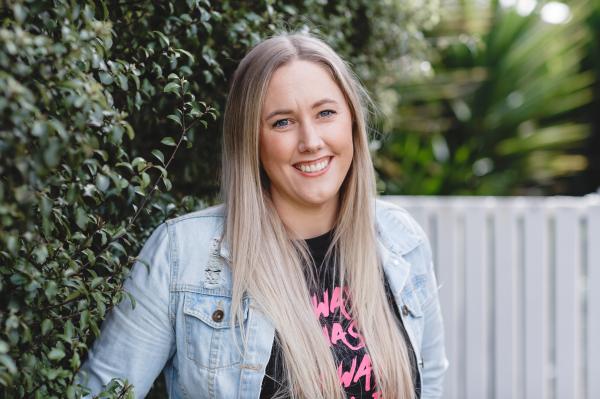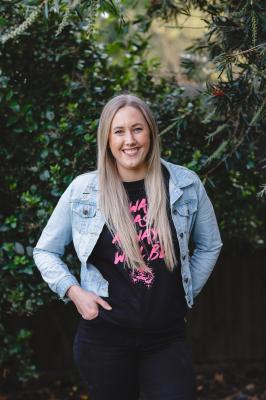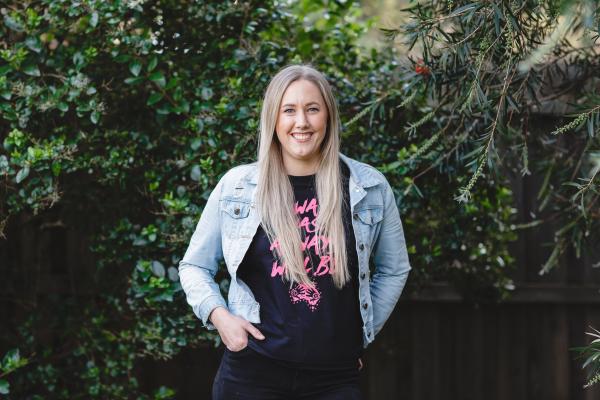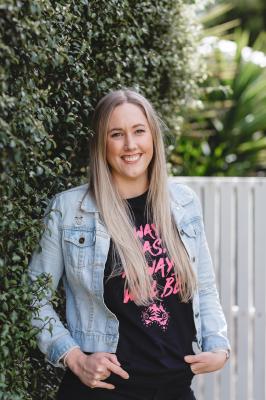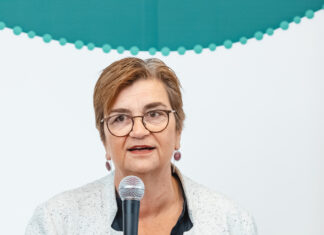Grovedale’s Libbie Arnott has provided a dozen of our most vulnerable children with a safe home to laugh, play and thrive since early 2016.
She speaks to Luke Voogt about the challenges and “privilege” of being a foster carer.
Libbie Arnott’s passion for protecting and caring for some Geelong’s most vulnerable children began with a move to help a friend with their newborn twins.
The Tasmanian-born former Melburnian moved down in February 2015 after studying a diploma of youth work.
“They already had two sons and the eldest has Down syndrome,” she said.
“They just needed a little extra help.”
A few months after moving, Libbie began putting her training to use working for MacKillop Family Services in residential care homes across Geelong.
She worked morning, evening and overnight as one of a team providing 24/7 supervision for homeless and orphaned children, or children from unstable, abusive and dangerous home environments.
“It was quite an eye-opening experience that we have young people in our community that have to live in this environment,” she said.
“Your teenage years are hard enough – let alone living with strangers and not having that family home and support.
“There were difficult times, but it was always in the back my head that there was an underlying reason for the behaviour.
“I absolutely loved getting to know these young people and having the opportunity to support them.
“Studying youth work and working in residential care made me acutely aware of the number of children in the area who need safe homes.”
In early 2016 she decided to open her own home to a 16-year-old girl living in residential care.
“She was unable to live with her parents,” she said.
“They asked if I would be interested in being a foster carer for her. It was very tough, at times – she had lots going on.”
But Libbie persisted, looking after the teenager until she was old enough to move into a home of her own.
Several years later, the young woman has a daughter and has followed Libbie’s path into social work, completing a certificate III in community services. They still remain in touch.
“She is an amazing mother,” Libbie said.
“Her daughter calls me grandmother, which is hilarious, because I’m 32.”
Libbie is now looking after a four-year-old and their six-year-old cousin, the latest of about a dozen children she has fostered while working reduced hours in residential care.
“I feel privileged to be part of their lives,” she said.
“It’s a huge privilege to be able to create a safe space for them to thrive and see them laugh, play and be a child without having to worry about anything else that’s going on.”
But foster carers like Libbie face added financial strain due to the under-funding of essential support services, according to Foster Care Association of Victoria (FCAV).
According to the association, three quarters of foster carers say having a child in their care has had a negative impact on their finances.
Fifty-nine per cent regularly use their own money to pay for child-related expenses and 55 per cent struggle to navigate child protection systems and processes.
COVID-19 has further increased these difficulties, according to FCAV, which is calling for better funding during Foster Care Week (September 12-18).
While Libbie said MacKillop had provided “great support”, she agreed services for foster carers were “hugely underfunded”.
“I think more funding needs to go into these crucial services to protect young people,” she said.
Libbie pays for sports and swimming classes for her foster kids out of her own pocket, services she believes should be government-funded.
“That’s a choice that I make because I want the kids to be doing those things, which are really important for their well-being,” she said.
She also admits to occasional difficulty navigating Victorian Child Protection Service processes, despite working in the sector.
“There would be so many people that don’t understand half the stuff that is being said,” she said.
Many foster carers have to chase child protection for refunds of expenses they should not have had to pay in the first place, according to FCAV.
And a lack of access to birth certificates and Medicare cards can make getting extra support more difficult, meaning foster carers often feel pressured to pay for health and education expenses not covered by their care allowance, the association says.
Victorian Child Protection Minister Luke Donellan recently announced streamlined arrangements for obtaining birth certificates and committed to developing a reformed client expenses framework, changes Libbie hopes will help make life easier for foster carers.
“It’s crucially needed,” she said.
But for her the joys of being a foster carer still easily outweigh the challenges.
“When people hear I’m a foster carer, they think you have to be some kind of superhero, but it’s not like that at all,” she said.
“You just need love and space in your heart and home for these precious children – you get back far more than you put in.
“There are so many children who need our support.”
For details on becoming a foster care visit mackillop.org.au or phone 1300 791 677.


